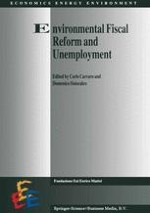1996 | OriginalPaper | Buchkapitel
Shifting taxes from value added to material inputs
verfasst von : Robert Repetto
Erschienen in: Environmental Fiscal Reform and Unemployment
Verlag: Springer Netherlands
Enthalten in: Professional Book Archive
Aktivieren Sie unsere intelligente Suche, um passende Fachinhalte oder Patente zu finden.
Wählen Sie Textabschnitte aus um mit Künstlicher Intelligenz passenden Patente zu finden. powered by
Markieren Sie Textabschnitte, um KI-gestützt weitere passende Inhalte zu finden. powered by
All economists are familiar with the case for Pigovian taxes. However, this policy paradigm has proven to be inadequate in concept and in practice. Therefore, it has rarely been implemented in actual tax measures (OECD, 1994). Conceptually, the Pigovian paradigm treats market failures arising from waste discharges into the environment as exceptional and occasional, but the laws of thermodynamics dictate that virtually all materials drawn into industrial processes will sooner or later be dissipated as wastes (Georgescu-Roegen, 1971). In fact, as this paper demonstrates, most of these materials are very quickly discharged as wastes into the air, into surface and underground water, or onto land. Thus, environmental externalities are ubiquitous and inevitable and occur at all stages of the life-cycle of “production” and “consumption”, as the Resources for the Future pointed out in a classic article 25 years ago (Ayres and Kneese, 1969) . Nonetheless, economists have not yet incorporated this fundamental fact into their models and analyses.
